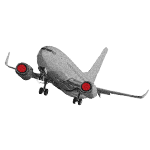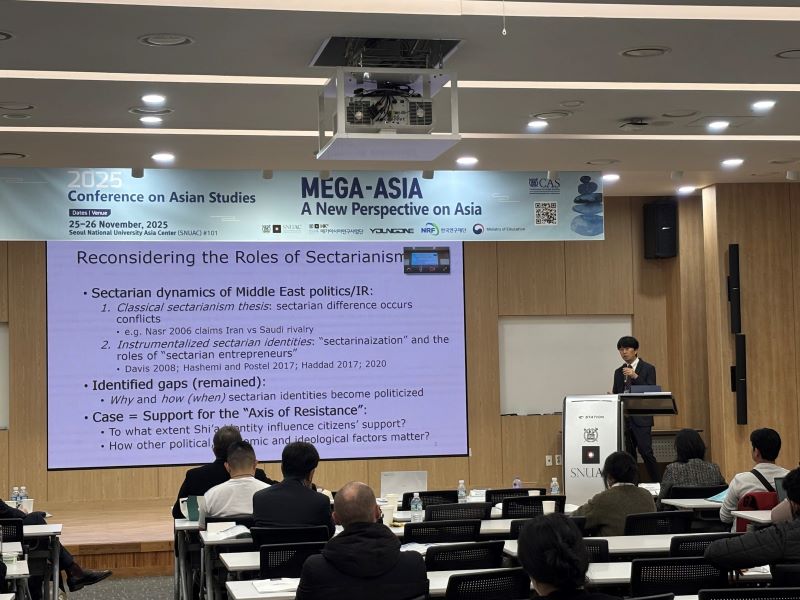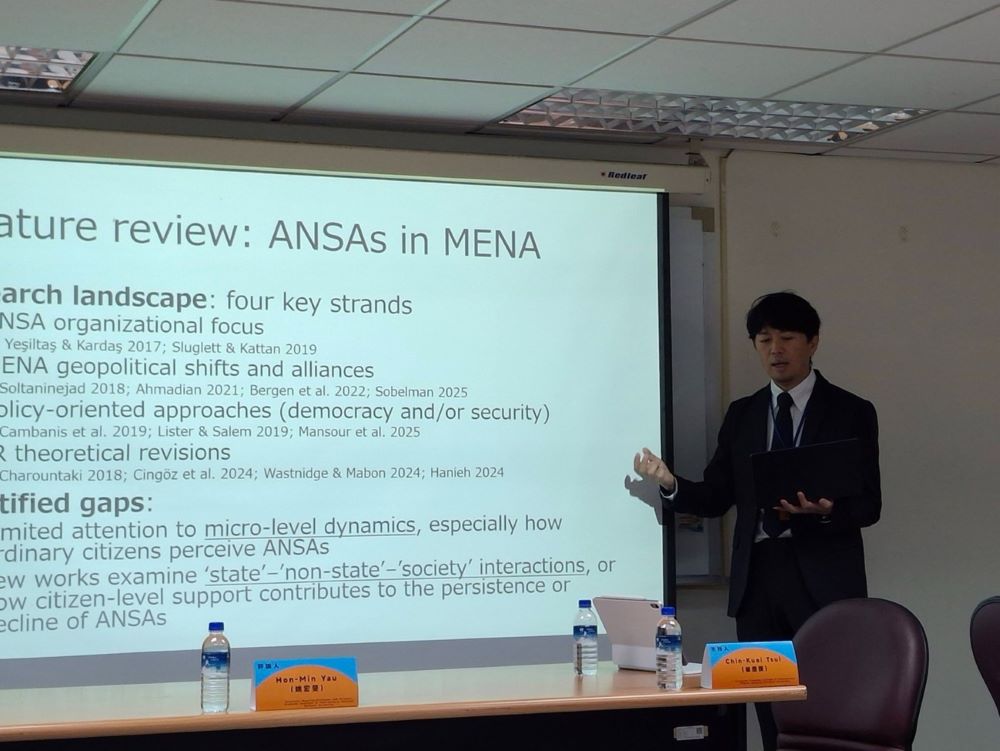RARA Fellow
Developing New Area Studies through Methodological Innovation in Middle Eastern and Islamic Studies



Developing New Area Studies through Methodological Innovation in Middle Eastern and Islamic Studies
SCROLL
FELLOW PROFILE
Professor at the College of International Relations, and Director of the Center for Middle Eastern and Islamic Studies (CMEIS) at Ritsumeikan University. Graduated from the Yokohama City University in 1997. Completed a master’s program at the Centre for Middle Eastern and Islamic Studies (CMEIS), Durham University (UK) in 1998, and a five-year integrated doctoral program at the Graduate School of Asian and African Area Studies (ASAFAS), Kyoto University in 2004, earning a Ph.D. in Area Studies. In the current position since 2006.
Also served as a visiting researcher at St. Anthony’s College, Oxford University (UK) and at the London Middle East Institute, SOAS University of London (UK).
SEE ALSO
Why have dictatorships and conflicts continued? Through the upgrading of Middle Eastern and Islamic studies, we aim to create a global society of coexistence with a deeper understanding of different regions and cultures.
The Middle East is a region that has been plagued by conflict and dictatorship. How do the people of ‘Historical Syria’, a region that has been particularly affected by these problems, perceive the ‘state’ and the ‘nation’, and how has this perception changed over time? In addition to qualitative research based on local language materials and fieldwork, I will conduct quantitative research using public opinion data, Big Data from local-language texts, and satellite imagery. Through this work, we will develop methods and techniques for ‘Area Studies 2.0’, which is characterised by the expansion of teleological interdisciplinarity.
The Palestine and Kurdish issues, which date back over more than a century, along with the 2003 Iraq War, the 2011 Arab Spring, and the Syrian Conflict, continue to shape the Middle East, where conflict and authoritarianism-driven chaos persists. My focus has been on “Historical Syria” (Syria, Lebanon, Jordan, Palestine/Israel, Iraq), a region particularly affected by these issues. Initially, I employed mainly qualitative techniques to understand the realities on the ground. However, the growing availability of public opinion surveys, statistical data, digitized texts, and other quantitative resources has enabled a more empirical study of the mechanisms behind conflicts and authoritarianism, by expanding data collection and analysis methods.
Why do conflicts and dictatorships persist? I hope to reexamine this question using new data and methods.
My future goal is to develop the next generation of area studies by implementing new methodologies that foster greater mutual understanding between different regions and cultures in the age of globalization. To achieve this, I will work on advancing Middle Eastern and Islamic studies as a RARA fellow and establish an international research hub at Ritsumeikan University, positioning it as a next-generation research-intensive university.
In the roadmap towards achieving my goals, firstly, I will use quantitative analysis methods to empirically clarify the perseption of the people of ‘Historical Syria’ on the ‘state’ and ‘nation.’ The results of this research will be disseminated both in Japan and overseas through reports at international conferences, contributions to international journals, and the publication of collections of papers in Japanese. Secondly, I aim to develop a new methodology for area studies that combines qualitative and quantitative methods and techniques, and to propose ‘Area Studies 2.0’ that will enable the elucidation of both the uniqueness and commonality of the various regions that make up the world. Thirdly, I will work to create an international research hub and train the next generation of area studies scholars by ‘involving’ undergraduate students, master’s and doctoral course graduate students, postdoctoral fellows and faculty members from within and outside the university.
Upgrading area studies is expected to provide evidence-based, objective and reliable knowledge not only for academia, but also for whole societies, where discourses (including prejudice and discrimination) that wield subjective likes and dislikes towards regions and different cultures around the world, particularly the Middle East and Islam, are becoming more prominent. A deeper understanding of these regions is crucial for fostering a more inclusive and coexistent global society.
Partnerships:
I am exploring the future direction of area studies in collaboration with Middle Eastern and Islamic scholars and research institutions, both in Japan and other countries, as well as through various interdisciplinary projects.
Research collaborations:
Globalization and the advancement of ICT have brought regions and cultures closer together, but this has also led to increased assumptions, biases, and hasty conclusions about others. To address these challenges, I aim to collaborate on advancing area studies, fostering a deeper understanding of diverse regions and cultures.



Latest Research Activity Report
-

Research Activity Report / Kota Suechika
Professor Kota Suechika presented at the 2025 SNUAC Conference on Asian Studies
2025 / 12 / 11
VIEW DETAIL
-

Research Activity Report / Kota Suechika
Professor Kota Suechika presented at the ROC-IR 2025 Conference
2025 / 11 / 25
VIEW DETAIL
-

Research Activity Report / Yuji Wada / Satoshi Konishi / Takanobu Nishiura / Kentaro Kaneko / Masayo Takahashi / Kota Suechika / Tomoko Hasegawa / Meng Lin / Haruo Noma / Ryo Akama / Satoshi Tanaka / Kazuto Saiki
RARA Fellows and RARA Associate Fellows exhibited at the Ritsumeikan TanQ Park
2025 / 11 / 05
VIEW DETAIL

